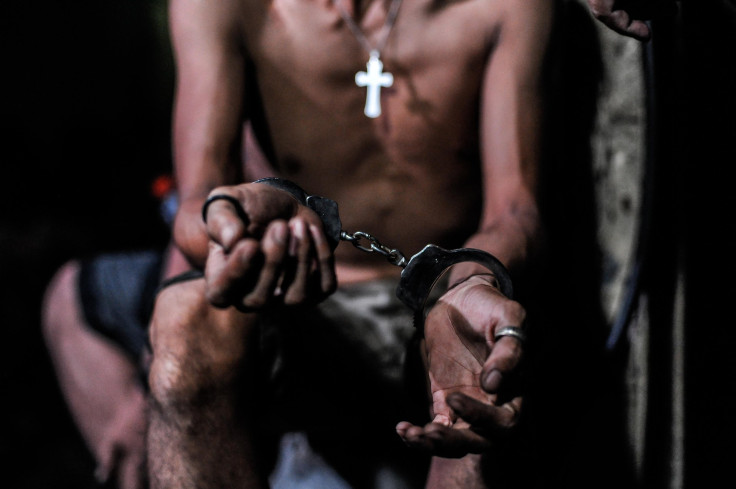Duterte Threatens To Slap Foreign Rights Activist In Front Of Vice-President Robredo

Philippine President Rodrigo Duterte, in a late-night media conference on Tuesday, made his displeasure known over an offer to help vice-president and anti-drug czar Leni Robredo end his “murderous drug war”. The offer was made by Phelim Kine, a human rights activist and adjunct faculty member at Hunter College at the City University of New York.
Kine is now the head of research and investigations at the Physicians for Human Rights (PHR), a U.S.-based non-government organization. The group has been a vocal critic of what they call “Duterte’s killing campaign” which has resulted in over 6,000 deaths from anti-drug operations.
He was once the former head of Human Rights Watch Asia and regularly lectures on human rights developments and challenges in Asia. He tweeted that Duterte and his "henchmen" should be arrested for inciting mass murder in the guise of anti-drug operations.
Duterte mistakenly referred to Kine as a prosecutor when he suggested that VP Robredo prove her dedication to her job as the co-chair of the Inter-agency Committee on Anti-Illegal Drugs (ICAD). He said, “[Translated] I saw the prosecutor's tweet saying, 'I am packed and ready to go and arrest Duterte.' You're going to invite someone who talks to me that way? Leni, I will slap him in front of you. Bring him here.”
Duterte later commented that he was offended because he was denied an opportunity to explain that the outlaw killings were not state-sanctioned. Robredo has said that she welcomes help from the international community but has not received any formal letter from Kine.
While Kine’s offer may be authentic and possibly helpful, he may not fully understand that human rights in the Philippines are a bit less of a priority than in the United States. An investigation into if police acted appropriately in the middle of a gunfight over drugs will be less of a concern in some impoverished areas where getting food on the table is a daily challenge. Duterte’s election in 2016 was largely based on his promise to eliminate the illegal drug trade in the country and he continues to get high ratings from the public on his performance.
The war on drugs has unarguably resulted in many deaths at the hands of overzealous or corrupt enforcement officers. But it is also true that in the Philippines, the VP often comes from the opposing political party of the president as was the case in the 2016 election. This puts the president and VP at odds on many issues.
Duterte’s war on drugs is certainly not free of human rights abuses and steps should be taken to end that. It is doubtful that a scholarly activist like Kine, by offering to arrest a duly elected president on Twitter, will be able to give any real help in a drug war.
© Copyright IBTimes 2024. All rights reserved.





















